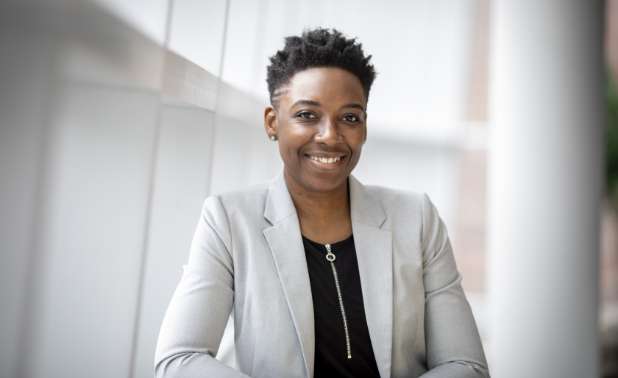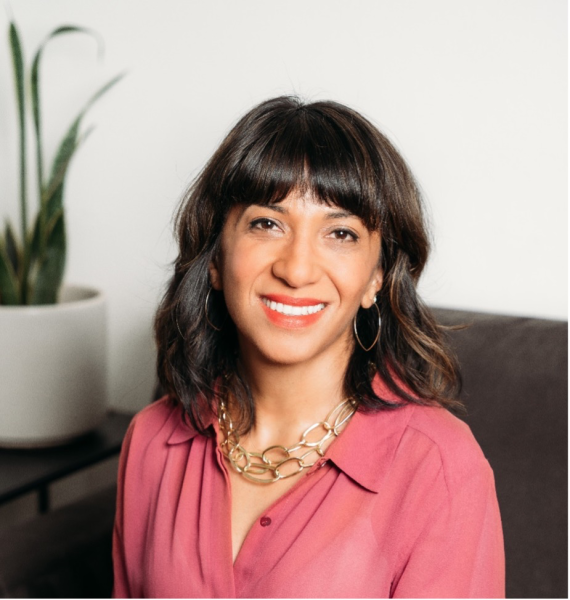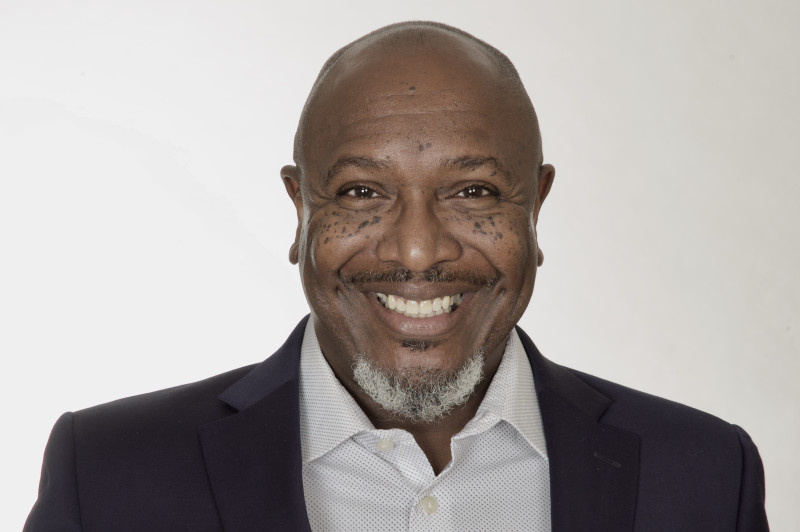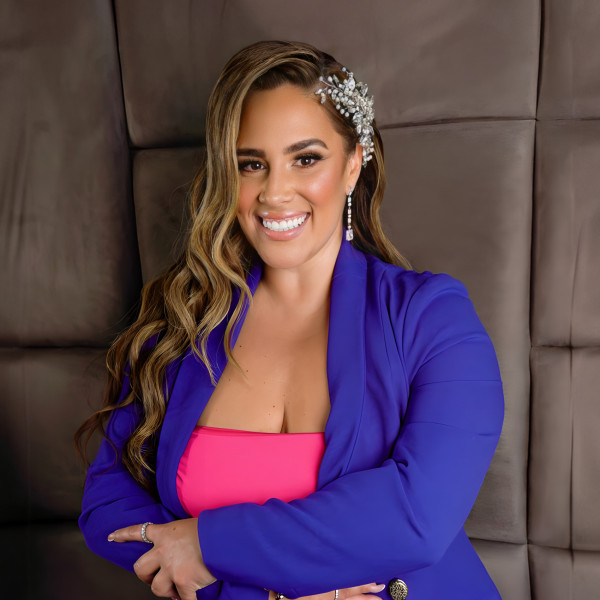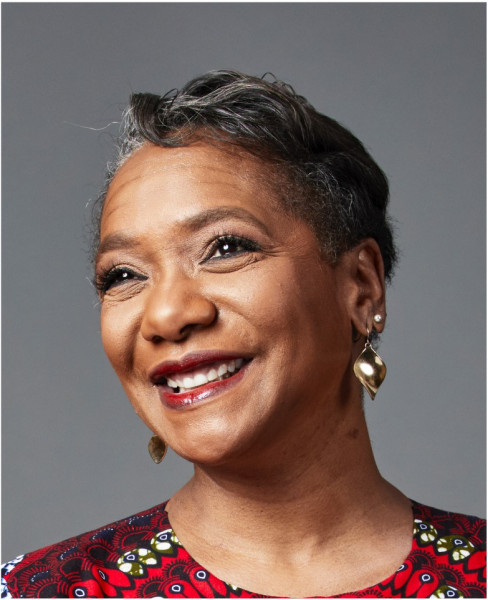Kamela Forbes:
Welcome to another amazing episode of But First People, a podcast presented by Pride Global that dives into the remarkable diversity of the world of work. I'm your host, Kamala Forbes, and in today's episode I had the pleasure of speaking with an incredible guest, Sahra S Halpern, president and CEO of the Business Consortium Fund, known as BCF and Triad Investments at Business Consortium Fund, a national community development finance institution, also known as CDFI and specialized Small Business Investment Company. Sahra has been a force of innovation, creating mission-driven lending programs and empowering community development by expanding capital opportunities to business owners of color. With a wealth of experience, including 15 years at Charles Schwab Bank in the community development group and strategic leadership at Capital Impact Partners, Sahra has made a significant impact by spearheading lending initiatives and structured fund development. In this episode, we're going to explore essential strategies for minority-owned business owners to achieve success when working with CDFIs and securing loans.
Sahra sheds light on the crucial factors that CDFIs consider when evaluating businesses and shares valuable insights on how corporations can fulfill their supplier diversity goals by collaborating with minority-owned enterprises. This conversation is packed with valuable nuggets that I'm super excited for. So without further ado, welcome to the show, Sahra.
All right, Sahra, I'm really excited. I know when we chatted, you seem to really like to sing like me, so as to keeping with our tradition, we always have our guests start off by singing a song for us, a song that means something to them that they like, that they sing when they're dancing in front of their mirror like nobody's watching, but something that makes us feel comfortable and just really ready to get deep and trusting. So what song do you have for us today?
Sahra:
Well, this song I will sing a few bars from today I think is really appropriate to our conversation. And I'll just start, I'll just get into it.
Kamela:
Yeah, start right in.
Sahra:
Okay. All right (singing).
Kamela:
Yeah, I'm loving that. I'm here bobbing my head. It's snapping my fingers. I was getting really into that, Sahra.
Sahra:
I can keep going. Just let me know.
Kamela:
I know, but we have so much more great information to share with our listeners today as much as I'm sure they enjoyed that song. I think what's so great is that song is very fitting because you've created this environment for people to lean on you. You have this innovative and responsive lending programs that you have created pretty much throughout your career, and now your focus is on making more of an impact specifically for businesses of color. Can you tell us what is your, what inspires your passion for DEI and for you to be focused specifically on business owners of color?
Sahra:
Absolutely. Well, specifically what brings me here is how lucky I am to have been blessed with the life I have. And I think back just a generation or two in my own lineage to my mother for one who grew up in Trinidad and Tobago. And when she was 14, she was no longer permitted to continue her education. She couldn't go to high school, her parents wouldn't let her. And she spent the years from when she was 14 to 19 working and getting her GED while the boys in her family were able to pursue their own high school education. And she fought. She really fought to be able to become educated and eventually come to the United States and get a college degree.
And that's why I'm here today. And I think about also from my father's side of the family, two generations ago as Jews living in Ukraine, they were run out of town if they were lucky, if they were lucky to survive. And so I think back onto my ancestors and I think about why I am here today and what I can do to give back. And I've recognized how blessed I am from the time I was small, and that's why I've spent my career in community development.
Kamela:
I love that. You receive and you pour back into your community, and I think you're doing a fabulous job of that when you think about these opportunities that you're affording people today. And so let's dive into exactly what it is you're doing to help these business owners of color. You're the president and CEO of the Business Consortium Fund, which is a CDFI. Now, can you tell us what CDFI is, what it stands for, and how you actually help businesses?
Sahra:
Yeah, absolutely. So a CDFI is a community development financial institution, and there are about 1,400 CDFIs across the country, and many of them help create real estate or affordable housing office space for nonprofits, etc. And then the rest of us support small businesses. So as a CDFI, we have a mission and our mission is to provide financial products and services into underserved communities. And for BCF, what that means is we exist to serve business owners of color and people of color, as probably many people in your listening audience know are some of the most underserved historically. And we are still overcoming that legacy of being looked away from when it comes to financial opportunity, when it comes to opportunities for investment in our own businesses. And BCF Business Consortium Fund exists to turn that around. We were formed by corporate members of the NMSDC back in the eighties when we were all still suffering from a lack of investment as business owners of color, but these really forward looking companies came together and seed funded BCF. And with that money we have been making loans to grow MBEs for the past 35 years.
Kamela:
Wow, that's pretty impressive. I think it's amazing the work that you're doing, and it's so great that an organization like this exists. I mean, who knew? Can you share with us a little bit about the history of racism and lending practices that has perpetuated a need for CDFIs?
Sahra:
Yeah, absolutely. So most of the impact has taken place over the course of the life of this country where we have business owners of color who either banks just completely say no on site. That was probably in much earlier days. It probably still happens some to some extent today. Or we have higher interest rates for people of color. We have lower loan amounts for people of color. And when the impact of that is taken generation over generation, what you have is you have businesses that have lower amounts of investments in the business, meaning smaller cash flow, meaning fewer business assets. And when you have a business that has lower cash flow and fewer business assets, it's harder to take a loan with the terms that a bank could provide. That's part of it.
The other part of it is that frankly, even today when you look at denial rates for people of color, you still see these effects where we have people of color who are receiving lower loan sizes and higher interest rates, even compared to a similarly situated white person. I would say this doesn't happen as much as it did in the past, but it still happens and it's something we all really need to be vigilant for and continue to fight against.
Kamela:
It's that unconscious bias, whether in some cases, maybe not as unconscious, but in some cases, yes. And I think that's just something that as we start to recognize that it exists, that hopefully those practices are changing. A question I have there is, so yes, BCF provides capital for business owners of colors. But I'd like to know, just to be certified as a minority-owned business, you have to provide proof. I'm curious to know what are the guidelines of providing proof of your racial identity in order to receive a loan from BCF?
Sahra:
We do take serving business owners of color really seriously, but we also don't want to create additional barriers for people of color. So we like to see a certification, but if business is not certified, we will take the word of the owner. We'll want to do our due diligence, but we don't want to have that be an additional barrier for someone of color. But we'll always recommend that that business becomes certified because there really are a lot of opportunities that certification can provide for any business.
Kamela:
So you mentioned that obviously CDFIs give this opportunity, but how are you different from a bank. And then specifically BCF with the focus on business owners of colors, how is BCF different from traditional CDFIs?
Sahra:
Yeah, sure. Great. So one thing that sets us apart from banks is that we work with the borrower from the time they're not ready for a loan. So many businesses come to us and it's their first time seeking capital. Why is this? It's because of some of the things we are talking about earlier. People of color are generally more reluctant to seek outside capital because of the known practices, historical and present in the lending industry. So we often see very new borrowers coming to us. So one thing we do is we help them become prepared. Things like how are you filing your tax returns regularly? Do you have a balance sheet and income statement that makes sense and that can show progress? What size loan do you even think of? So some people think, "Well, how about a million dollars or how about a half a million dollars?"
But what you really need to think about as a business owner is, "Well, what is the purpose of this loan and how can I repay it?" So you think, "Well, if I'm going to take in a half a million dollars, how am I going to use it to grow my business? And also how is that that investment I'm making in my business, how is that going to create new returns and new cash flow so that I can eventually repay that loan?"
So we provide all of this education about how to think about taking on debt capital, and we provide really step-by-step how to apply for a loan. What are the documentation, what is the documentation you need? How soon do you need to have it, in what form, in what order? Here are the things you need to think about. Our staff is there and we are on the phone with our borrower sometimes for years before a borrower even takes on a new loan.
Kamela:
Oh, I think that's incredible. It's one thing to get a loan, but I think that education piece that you spoke about is so critical because again, traditionally maybe that's something that you don't necessarily just learn from a parent if you haven't been in that situation before. And so just on that same token, in terms of education, are there any downsides of working with a CDFI versus working with a bank?
Sahra:
We would always say, if you can get a bank loan at a lower interest rate, you should definitely do that. And we'll even help you do that. We'll introduce you to our bank partners, we'll help you as a business owner make those relationships. But often what we see is that because clients are new to taking on debt, capital banks are still not ready to say yes. The businesses we serve are often smaller than a bank is willing to bank. They often have lower margins, lower cash flow. So what we do is we help the small business grow and become to a point where they are ready to take on bank capital.
And as a CDFI, you'll also see our interest rates really depend on our funders. Right now, banks provide funding to us and they provide it at pretty competitive rates because they love our mission. But it's really dependent on that funding. We try to keep it competitive, and right now we are very competitive with bank financing. But again, we are here to support the client. We're not here really to hawk our product above something else. We are here to help small business owners.
Kamela:
I love that. And so like you say, it's really not about you chasing that opportunity for you to provide that loan to them. It's about giving them, again, that education that they need. If you're the best option, then you want to present that, but you're also willing to present better options if there's one that exists for that client.
Sahra:
That's definitely true. But one thing we also need to talk about is the life of the loan. So business owners are going to go through various cycles and some of them are not going to be great. And despite our best planning, sometimes we have down cycles or down years. One thing that sets us apart from banks as CDFIs is that whereas the bank is required often to write down a loan or write off a loan, we don't have that same requirement. So we can work with a borrower for a longer time period to get that borrower back on track. I think about some of our clients who they look back on the life of the loan and they say, thank you so much for working with us. One of our clients actually had so many ups and downs and we were with this person every step of the way, and we could say, "Listen, for this quarter, we're going to half your interest payments and we'll add it on to a different part of your lending cycle."
This client eventually sold his business and when he sold it, he wrote a grant to BCF to thank us for all of the help that we provided him over the time that he owned the business.
Kamela:
Wow.
Sahra:
So it's really a relationship that we create.
Kamela:
I love that. Impressive, and I love that it's a give and take. You never know what happened. I don't think any of us anticipated the pandemic a couple of years ago. And so businesses I'm sure weren't prepared for that. Who would've written that out in their looking at how they were going to repay a loan. And so the fact that you're able to work with organizations is such an added benefit.
And as I think about it from the MBE side, you're obviously a great resource to MBEs, but how can corporations fulfill some of their supply diversity goals while at the same time supporting BCF?
Sahra:
That's such a great question. I'm so glad you asked that. Because we're not only here to support MBEs. We are here to support corporations that have supplier diversity objectives. So what we do is we help corporations amplify their own supplier diversity efforts. As a corporation, you could become a member of BCF, you can serve on our board, we can engage with your diverse supplier cohort. And the goal here is to grow MBEs because as we all know, it's more efficient for a corporation to have four contracts with four larger companies rather than eight or 10 contracts with smaller companies. So we want to be here to help MBEs grow so that they're of a size and complexity to help carry out corporate contracts. This access to capital is so critical. That's why the corporate members of the NMSDC recognized it so long ago.
And what we see is that with additional access to capital, the small and growing MBE can now become poised to deliver on increasingly larger, more sophisticated contracts. And what the end result is we want more MBEs to earn their place as businesses to really be counted on in corporate supply chains. We want more MBEs, more ingrained in corporate supply chains because that's really the path to increased wealth for these communities that we're serving.
Kamela:
That's the plan.
Sahra:
That is the plan.
Kamela:
Providing that support, that education on both sides of the fence to be able to actually move that needle and make this happen.
Sahra:
Yeah. And we really rely on our corporate members and our corporate partners to share their field experience with us as well so that they know or that we can learn from them and what they're seeing and where the gaps are for them. And we can help direct our clients to try to fill in those gaps too. So it's really a multi-way conversation where we're trying to advance the objectives of these two really different groups of stakeholders, but we have the same common objective.
Kamela:
Can you share maybe an example of a business owner who had maybe an adverse experience where a bank said no, but then BCF was able to help?
Sahra:
Yeah, absolutely. So one of our really wonderful clients runs a transportation agency here in California where I'm based, he runs it in Silicon Valley. And he was looking to grow. He saw an opportunity to, if he could purchase more vehicles, there's a lot of opportunity for him. But at the time when he was able to get a bank loan, the interest rate was just astronomical. He just couldn't take it on and he came to BCF and we were able to give him a loan at a much more reasonable rate. And with that loan, he was able to really grow his organization and then years later, it was time to take his business to the next level. And he wanted to electrify his fleet based on the demands in the market. And actually at this time, he didn't even need BCF, he was able to go to a bank because he had reached that critical mass where his business was able to take on bank capital and easily repay it.
Kamela:
Wow. So I'm sure at that point you all felt like proud parents. You're able to raise your kid-
Sahra:
That's right.
Kamela:
... and then set them off into the world to be free and successful.
Sahra:
Absolutely. But like parents, of course, we learn as much from our clients and probably more than our clients learn from us. We are really here to serve. We are here to provide tools to help them do their best work.
Kamela:
Exactly. Well, so for companies that would be interested in working with BCF, what can you tell our listeners that, one, would have to have in order to be successful in securing a loan?
Sahra:
Well, what I like to say is first, know yourself. And by that, I mean the business owner needs to know his or her own business. Really be fully versed, well versed in your growth. What does your cash flow look like? What are the requirements of the industries that you serve? So do you have the right insurance in place? Do you have the right policies and procedures in place? Really knowing your business is the number. And I know it sounds almost trite, right? Or it seems almost like, "Oh, well obviously you have to," but really understanding those financial statements and the environment in which you work is so critical. So that's one thing. Another thing is really understanding the purpose of the dollars you want to take on. We say, you hear about purpose-driven finance, and we really embody that. Every dollar needs to have... Actually you know what, I want to take that back about purpose.
This is so great, we can take it back. No, let's not say purpose-driven finance. That's a whole other thing. We need to make sure that every dollar that a business takes on has a purpose. And that purpose really needs to be about growth. It needs to be about taking that business to the next level, not creating new problems, not solving cash flow problems that were created from a mistake we made last year or the year before. It's really about new opportunities for growth. So having a purpose for every dollar. And then the rest of it really comes down to documentation and everybody hates it. The documentation is a pain. We all have done it before when we apply for a job or a mortgage or whatever it is, but we need the documentation. And once we have all that in place, then our staff will look at the opportunity. structure a loan that works if we can.
We do not want to have clients in a loan that doesn't work for them, we want to make sure that the loan is something that can be repaid, that creates opportunities that doesn't keep you up at night, and that really creates a brighter future for your business.
Kamela:
I mean, that sounds really great, but what happens if one doesn't have all that necessary paperwork or the collateral needed? Are there other factors, the CDFI can consider in evaluating a company's ability to repay? Or what advice would you give to a company not in a position to provide that at the time that they want to apply?
Sahra:
Yeah, we can certainly look through your financial statements with you and look for opportunities to improve cash flow and things along those lines. We can also connect you as a business to opportunities for grants. We work with other CDFIs that have grant opportunities. We can help you think about how to create more efficiency in your business. In the end, we're going to evaluate the ability to repay. And that's really the most important thing, that you're not taking on debt that you can't repay. So if you don't have the collateral and you don't have the cash flow, we'll work with you over time to grow your business and introduce you to new opportunities. But without those basic items, you may not be ready to take on new debt.
Kamela:
And I think that's the point you're making, that you provide that education. It might be that education is that you're not ready right now, but what can I do to get ready so that in the future I am able to do that? So Sahra, I love that BCF has originated 228 million in loans and financed 950 minority owned businesses since 1987. That's a lot to be proud of, but I imagine you don't want to stop there. What do you want to accomplish and what do you want your legacy to be?
Sahra:
We want to keep on growing BCF so that we can continue to expand the pool of MBEs serving in corporate and government supply chains. So we've done that over 35 years, but frankly, Kamala, in the past 10 years, BCF has been really undercapitalized and a lot of people in the network realize this. So the exciting opportunity now is that we have recapitalized, we've brought on $20 million in new capital from banks that we are deploying like crazy. We are re-engaging with the network. We've hired more lending staff to get the dollars out there, and we want to grow ourselves to a hundred million dollars in total available capital by the end of this decade. That is our big goal. And with that a hundred million dollars, it'll be recycled again and again and we'll continue to grow and we'll continue to serve MBEs out there.
Only a small portion of MBEs are certified, and we want to go beyond those MBEs who are currently certified. We want to bring more MBEs into the fold, into the supplier diversity fold. And to do that, they really need this capital that helps them grow. So we do this debt financing.
We are also engaged in a private equity fund called Empower The Change. We have partnered with Advantage Capital based out of St. Louis, Missouri, and we are deploying equity capital through “Empower the Change.” So we are trying to attack the issue from multiple angles, from advice, from technical assistance, to debt capital, to equity capital. But that's not only it too. A lot of it is the social network, right? In making introductions to people like you to other heads of supplier diversity across the ecosystem. There's so much opportunity here, and if we can help MBEs become certified and grow, then we think that it's such a huge opportunity to really turn around the racial wealth gap. And that's what the staff of BCF is here to do. In the end, we really want to eliminate the racial wealth gap, and we see this as such a powerful way to do it.
Kamela:
I think that's the legacy to leave, and kudos to you and your team for all of the wonderful work you're doing for education, you're providing for MBEs, for the growth that you're looking to put in the industry and the supplier diversity fields, and being able to work with corporations to help them accomplish their supply diversity goals. I think it's such a wonderful ecosystem that you all are creating to be able to give back and provide opportunities for businesses of color. So thank you for the work that you do. Thank you for your commitment to providing capital opportunities, and thank you for joining me on the show today.
Sahra:
It was my pleasure. Thank you so much for having me. And for those MBEs or corporations who want to learn more about BCF, it's so easy to find at bcfcapital.com. And for MBEs who are looking for capital, it's super easy to put your information in and we're happy to talk to you about opportunities that we have if it's a good fit or opportunities that we see across the field.
Kamela:
A big thank you to Sahra for sharing so much wisdom on today's episode. And thank you to you, our listeners, for joining in. If you're curious to know more about Pride Global, head over to our website@prideglobal.com. If you have any questions for Sahra and myself, feel free to email us at, butfirstpeople@prideglobal.com. And of course, don't forget to share rate and subscribe to our podcast. Thanks again for tuning in, and we look forward to having you back with us again for our next episode.












